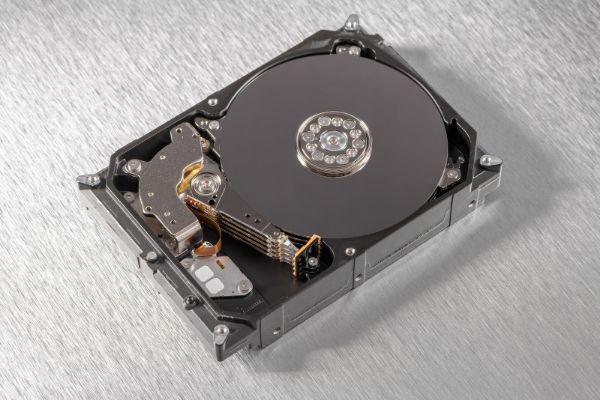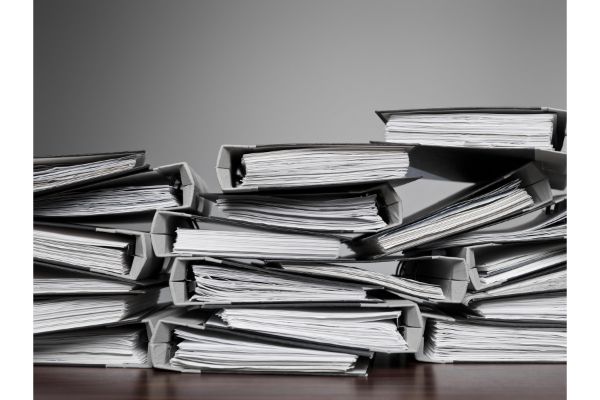Disclaimer: This post may contain affiliate links, meaning we get a small commission if you make a purchase through our links, at no cost to you. For more information, please visit our Disclaimer Page.
Unlike temporary memory, such as random-access memory (RAM), the hard drive is a sort of permanent storage. This means that when you shut down your computer, the data stays safely stored on the disk. In other words, the data remains there, ready for use next time you boot your system.
Pretty handy for storing files, operating systems, applications, and much more! Unfortunately, you can only store so many things on it. So what happens when there’s no more storage on your HDD?
When your hard drive is full, your device begins to run slowly. This is because storing data becomes more complex and accessing previous information becomes more time-consuming due to congestion. A full hard drive could also lead to other problems and could make your system crash in the process.
Table of Contents
What Issues Occur When You Have a Full HDD?
Hard drives have come a long way from what they used to be. The first hard drives were large but had a limited storage capacity.
Over time, manufacturers have made significant storage capacity and dependability improvements. Now, hard drives are compact, rugged, stylish, and have large storage capacities.
Nonetheless, as data is created and saved on the device, it will inevitably run out of space. So even if your hard drive has a large storage capacity, you’re bound to experience storage issues eventually.
At that point, you’ll encounter a slew of issues with your PC. Unfortunately, these issues prevent your system from functioning as it should.
Below are five common problems associated with a filled hard drive:
Slow Startup
When your hard disk has exceeded its capacity, the first thing you’ll notice is that your computer begins to boot slowly. Additionally, it will take longer to find information among the system files.
For instance, imagine having a box cramped to the brim with too many items. Inside that box, you’re trying to find a small pen. You realize that locating that item becomes more challenging and time-consuming because of a lack of space.
On the other hand, if only a few things are inside the box, you can easily find what you’re looking for. The same thing applies to hard drives.
When a hard disk is full, it becomes more difficult to locate data on your pc. Plus, it’ll take longer to load up all the information while booting, making the process slower.
Error Notification
Once your drive has taken more than it should, your system notifies you. Occasionally error messages will pop up informing you that you need to free up space in your device. While this is not harmful, it can be disturbing as it interrupts your work on the computer.
System Failure
A computer requires a specific space on the hard disk drive for virtual memory. It is used to store data while the RAM is being cleared. If there isn’t enough virtual space to act as an overflow, memory-intensive processes can cause the computer to freeze and crash.
Once this happens, you’ll be forced to change the hard drive. However, you’re going to lose most of your essential files as retrieving them from the old drive might be impossible.
Less capability and operations on the computer system
A full hard disk drive might not perform all the actions you desire. For instance, you’ll find updating your system and adding new programs difficult. There’ll also be insufficient space to add new information that might be important to you.
Corruption of Data
You may also encounter data corruption which could render certain information inaccessible. For instance, if your computer crashes while some of your files remain open, the file may get compromised.
What Is Taking Up Space on My Hard Drive?
When you begin to receive notifications that there isn’t enough space on your computer, you wonder why your system is filling up. Of course, the more data you store, the less space you have.
Nonetheless, it wouldn’t be a bad idea to view all files taking up room in your drive. With this, you’ll be able to know where to begin when cleaning up apps and software.
How to find out what is taking up space on Windows 10
If you’re using Windows 10, follow the steps below to discover the files on your hard drive:
- Locate the settings on your computer system
- Click on “system”
- Select the storage option from the list
- Under the (C:) section, you should see all your hard drive’s information. Here you’ll see the apps and features, temporary files, and others
- Click on “show more categories” to see other storage usages on your computer
The steps above are for newer Windows 10 versions like 21H1 and 21H2. For older versions of Windows 10, follow the instructions below:
- Open Settings on your computer system
- Click on “system”
- Select “storage”
- Click the “local storage” option to view your drive. With this, you’ll be able to see the apps, music, videos, games, and other files on your PC
How to Create Free Space on the Hard Drive
When your desktop or laptop PC becomes overly cluttered, you may encounter significant performance concerns. If you’re experiencing a slowdown or halting programs on your computer, it’s time for a comprehensive hard drive cleaning.
Here’s how to free up space on your desktop or laptop’s hard drive.
Uninstall Unused Programs And Applications
Even though you are not program does not mean it has vanished. Go through your applications and see if there’s any that you don’t actively use. Chances are you have some. To get rid of these files, follow these steps:
- Click the start button
- Select “apps”
- Pick “apps and features” from the menu that appears
- Sort by file size to determine which programs are the largest
- Remove any application that you are no longer using by selecting them and clicking “uninstall”
Also check your recycling bin and delete them!
Clean up Your Desktop or PC
Many people are used to storing everything on personal computers. Nonetheless, these begin to take up more space with time, making your desktop operations slower.
Consider deleting unnecessary files and moving the remaining two other folders. However, if these files are vital, you could move them to external storage.
Eliminate Enormous Files
While computers efficiently store data, certain file types can eat up valuable storage space. So the best thing to do is find these extra-large files and take them off your system.
To find the biggest files, follow these steps:
- Open your file explorer
- Select PC
- In the upper right-hand corner, rearrange your files according to size
- Go through your large files to determine if they contain anything or necessary
- If they are all essential files, uninstall or delete them
Perform a Disk Cleanup
A disk cleanup tool comes pre-installed on Windows 10 PCs and offers a one-click solution for deleting unused operating system files. It operates by automatically identifying this software and deleting any that are unnecessary.
Take note that the “Disk Cleanup Tool is distinct from the Disk Defragment Tool.” While both are necessary for optimal performance, the second tool assists in managing critical files without taking up additional disk space.
Frequently Asked Questions
Can a Full Hard Drive Cause Problems?
Yes, a full hard drive can cause several problems on your computer. First, it makes it run at a slower pace, loading your information slower than it should. It also makes working on the system more difficult and less exciting.
In severe cases, when the hard drive can’t handle any more information, it crashes the PC.
Does Having More Data on a Hard Drive Slow It Down?
The speed of your computer also depends on the amount of data you have stored in your drive. Storing more data will not affect speed, provided there’s still enough space left after storing the data. However, saving this information becomes a problem when the drive is almost full.
Here, the best option is to use an external storage device to save other essential documents and files.


